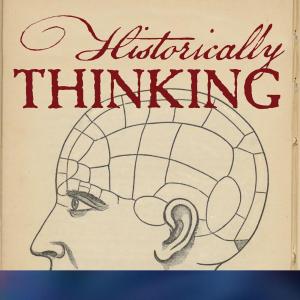Historically Thinking

Episode 288: The American Revolution in Hapsburg Lands
In 1780, captured American naval officer Joshua Barney escaped from prison in Plymouth, made his way to London, and with the help of some English sympathizers to the American Revolution was able to take the ferry to Ostend, the principal port of the Austrian Netherlands. During his journey he struck up an acquaintance with an Italian noblewoman after curing her seasickness. Grateful, she insisted that he accompany her by carriage to Brussels, where in a “certain hotel” a porter ushered the two of them into the presence of the Holy Roman Emperor, Joseph II of Austria. As Barney remembered it decades later using the third person, he was surrounded by “big whiskered Germans and spruce Italians who eyed him with a stare of surprise equal to his own.” Barney’s was far from the only interaction between American rebels, and the Austro-Hungarian empire, its rulers, or its inhabitants. Take, for example, the proud parents who in 1778 at the baptismal font of St. Stephen’s Cathedral in the heart of Vienna had their infant son christened Benjamin Silas Arthur Schuster, his first three names those of the three American commissioners then in Paris–Benjamin Franklin, Silas Deane, and Arthur Lee. This is one of numerous anecdotes and instances that Jonathan Singerton deploys in his new book The American Revolution and the Hapsburg Monarchy, to support the somewhat surprising argument that “the American Revolution had a deep-rooted impact in the Habsburg lands which ultimately lasted through to the nineteenth century.” Jonathan Singerton is currently a lecturer and research associate at the University of Innsbruck; this is his first book. For Further Investigation For previous conversations related to this topic, you might consider Episode 149: Edges are Interesting, or, a History of Eastern Europe (in which I propose the radical and unprovable hypothesis that the Habsburg Empire was doomed because Joseph II hated his Latin tutor); and my conversation with Glenda Sluga in Episode 257 on the Congress of Vienna in 1815. Jonathan Singerton recommends the website Die Welt der Hapsburger (in English, if necessary) when you want "to get into the Habsburg's more" Jonathan says that, for more reading, Pieter M. Judson's The Habsburg Empire: A New History "is essential, as is" Martyn Rady's The Habsburgs: To Rule the World (as it's titled by in the States)






 Visit Podcast Website
Visit Podcast Website RSS Podcast Feed
RSS Podcast Feed Subscribe
Subscribe
 Add to MyCast
Add to MyCast